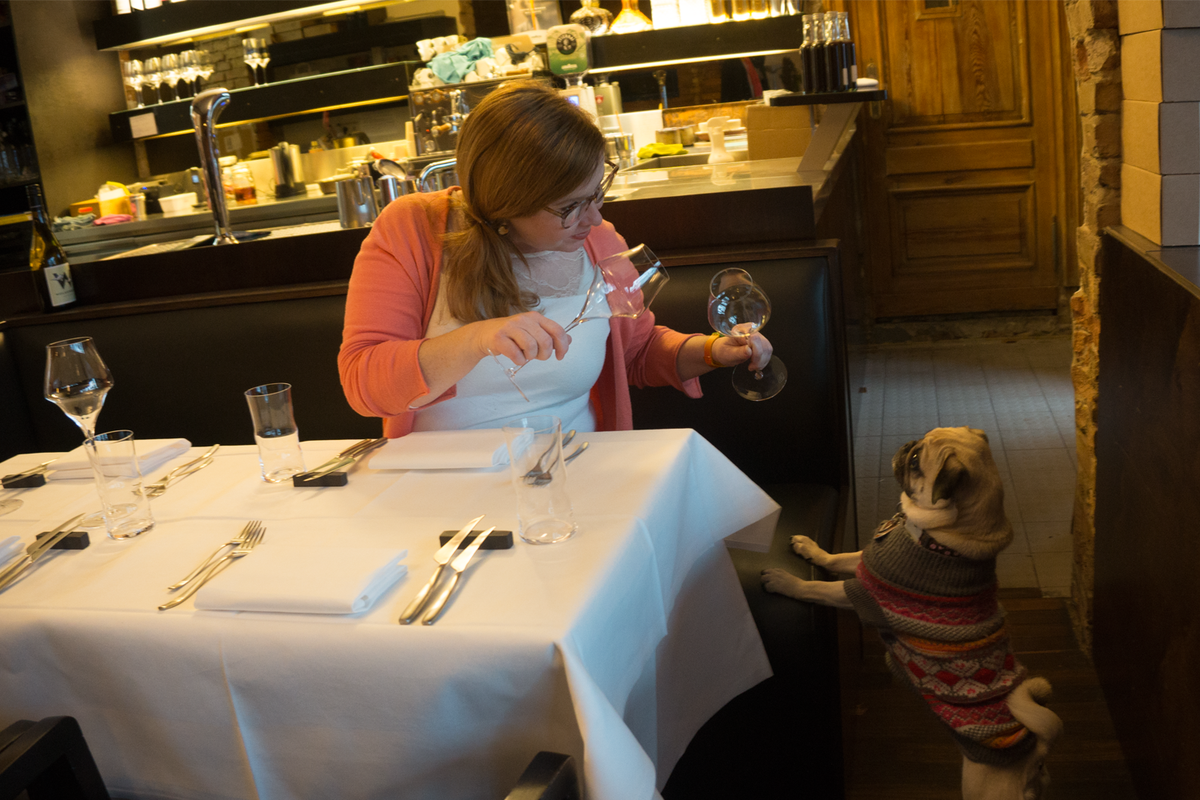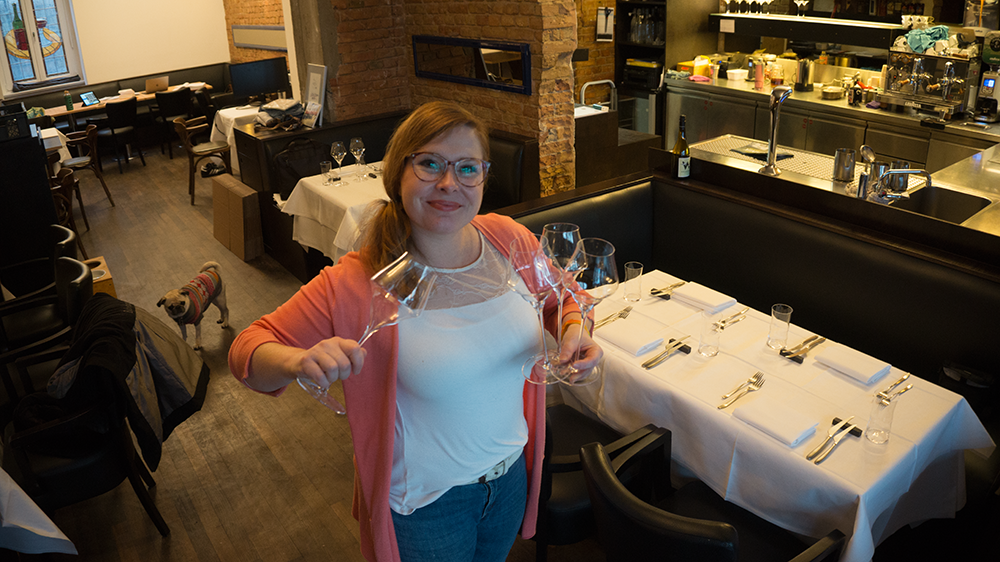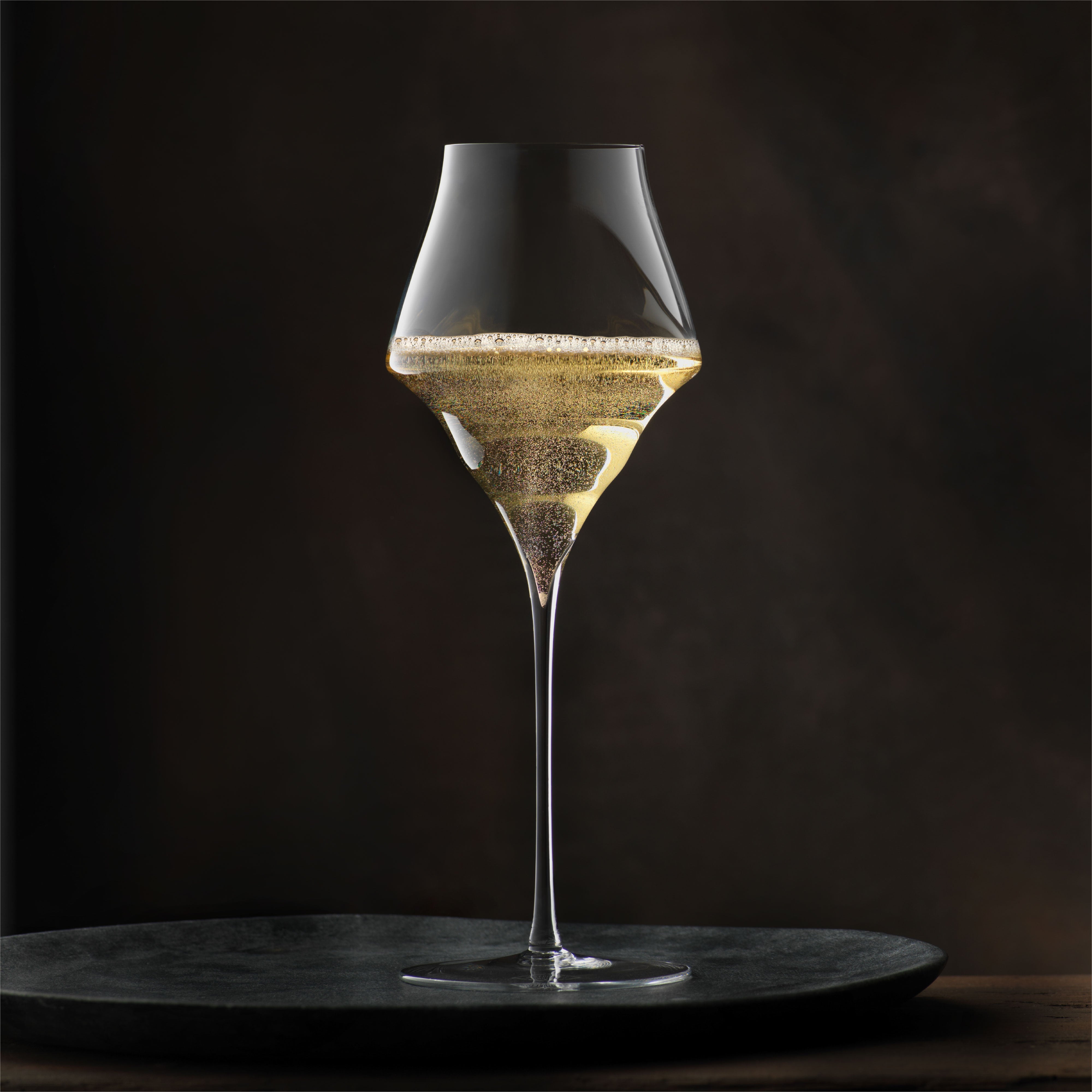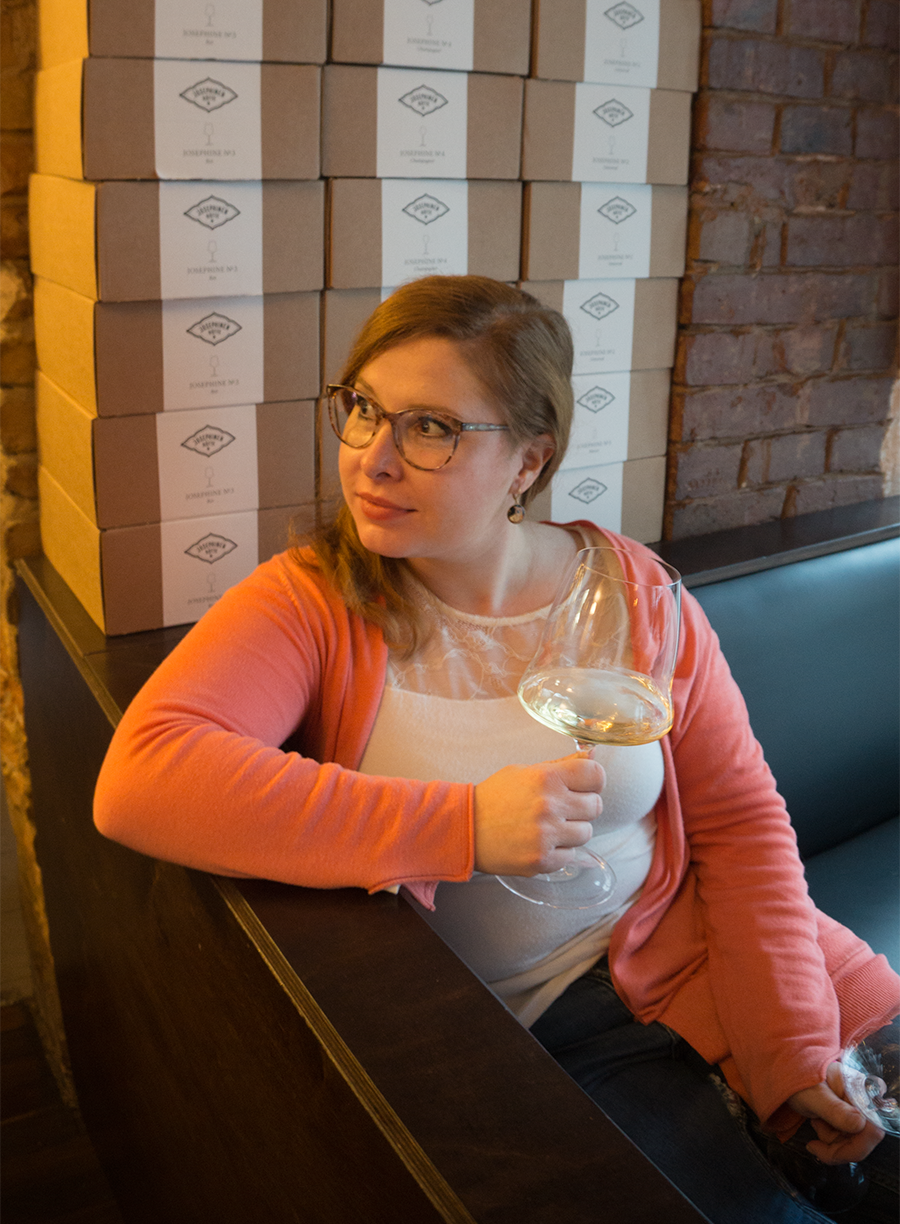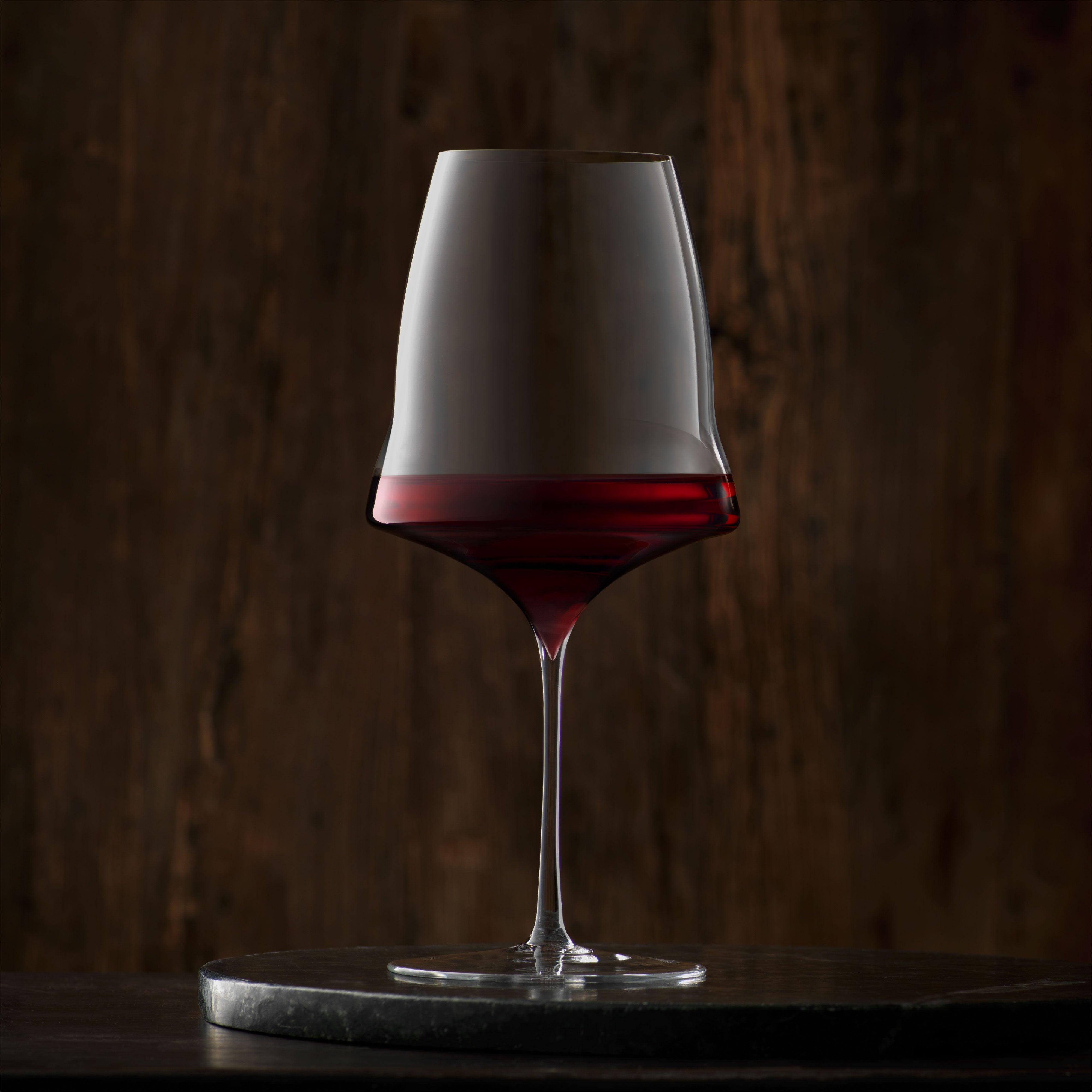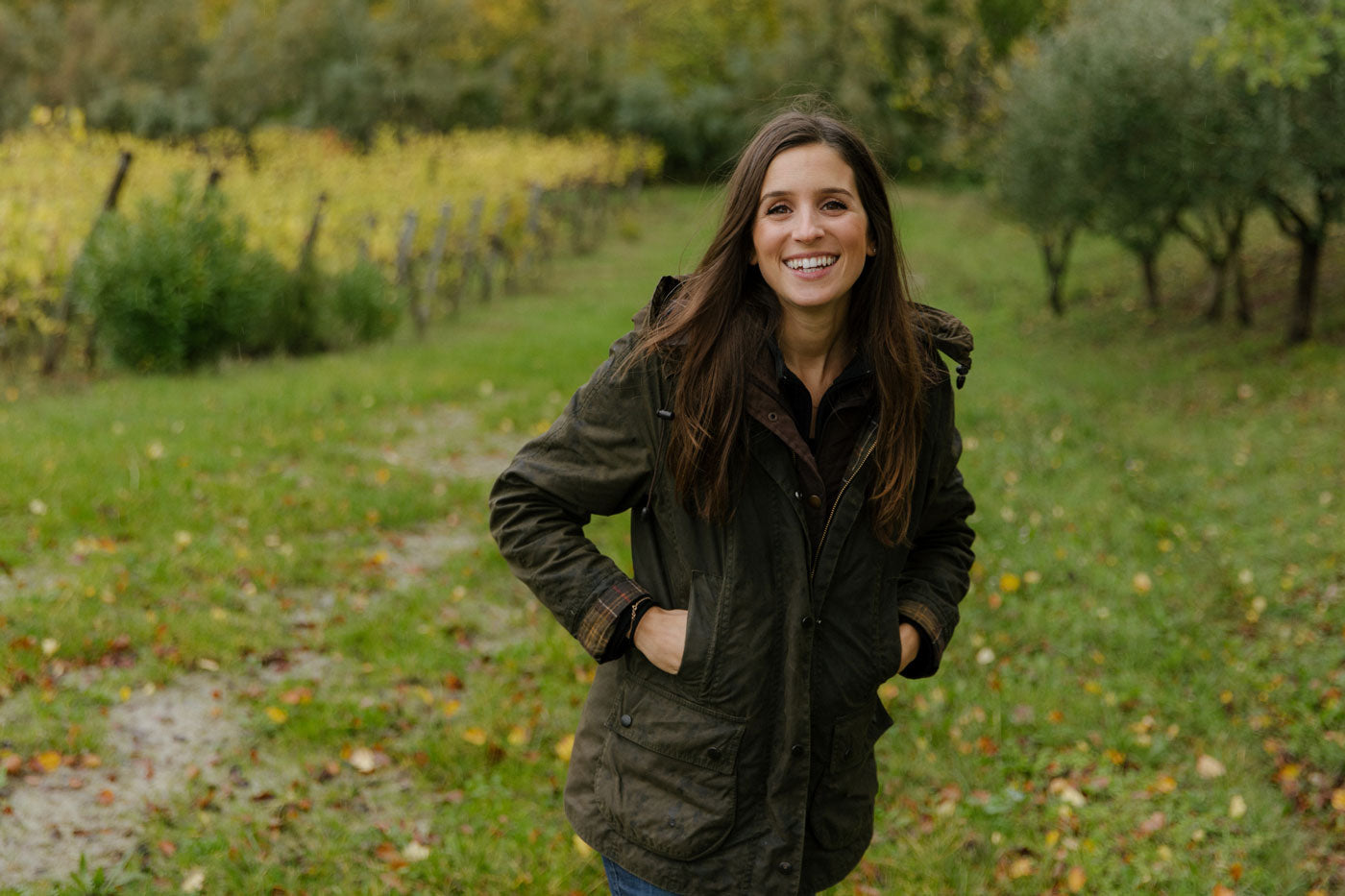Maria, you recently took on the position of a sommelier at BRIKZ, Arne Anker’s new restaurant in Berlin. Can you tell us a bit more about the restaurant and its concept?
As you'd imagine, opening a new restaurant in the middle of the lockdown is perhaps less than optimal, but we've risen to the challenge and have worked hard to find creative 3 or 4-course menus, that work well as take-out. So far they've been selling really well!
As soon as we are allowed to open our real doors, we can’t wait to share Arne's vision of a fantastic ‘homestyle’ experience with our guests. Each of our five team members agrees that we have all had enough of the traditional restaurant model. Long hours. Little appreciation. In my opinion, it's simply an outdated approach. At BRIKZ, we're looking to convey the ‘homestyle’ feeling. Four courses. One price. Great organic wine as accompaniment. A wonderful way to spend an evening with friends.
And at the center of it all: Arne's cooking. Delicate dishes with components that blend together perfectly and his trademark vein of acidity. For example, there’s a lively acid kick that shines through beautifully in his signature sauerkraut-and-Chinese cabbage dish that he calls “Anker as Jelly.”
That sounds delicious! And what kinds of wines and beverages are you offering?
A wine list is inherently a dynamic object. I look forward to pondering our list together with our guests, in order to adjust it to their liking. I will, without a doubt, shape the wine card using the customer’s feedback. But one thing is already clear: We will only serve organically produced wines. Handmade bottles through and through, preferably from small estates like Weingut Odinstal from Germany’s Pfalz winegrowing region.
Arne's cooking is fresh and marked with a bright acidity. It fits perfectly to my personal wine favorites, but it's also about more than just the wines — we want our guests to enjoy a complete sensory experience. I love the surprise and delight that comes when serving a cider, a beer or even a sparkling wine made from rhubarb alongside the different courses.
And right there you can see just how complex your profession is. You need to know your way around so many different areas: wine, juice, teas, cocktails, spirits, cigars... which of these aspects bring you the most joy and why?
For me, they belong together. It doesn't really matter whether it’s tea, juice or wine. What's really important is identity, hand crafted products that have both a soul and story. The concept of terroir — meaning a product’s specific origins — plays a significant role as well.
Personally, I have a soft spot for sherry. It is, at least in Germany, a completely underrated beverage. I plan to offer a sherry with each of my menus to show the full nuance and potential of this specialty. Especially when you're working with a particularly aromatic cuisine like the Nordic style, sherry is pure pairing perfection. My somm secret of the day: fresh oysters with Fino sherry. A true explosion of flavours!
From Vendôme in Bergisch-Gladbach to Hide Restaurant in London – you know your way around fine dining like few others. But let’s look at the other side. Where did you have your own most thrilling restaurant adventure as a guest?
That's a tough one. There have been so many fantastic experiences. There was one time in Berlin, a few years ago — honestly, it might well be the reason that I'm working with Arne now. I was a sommelier at Reinstoff at the time. We took our team to lunch at Arne's Pauly Saal and had a great meal. And there was a sauciere on our table, with the last sip of the most incredible sauce I had ever tasted. Without thinking, I picked it up and drank it. Heavenly! Arne caught me red-handed and burst out laughing. A few months later I was eating at Pauly Saal again and as an "amuse-bouche," Arne sent me a small "sauce course." A thoughtful and memorable gesture. And that's why I continue to admire him today!
Great story. Now that is customer service. We talked about your wine list at the beginning. But we haven't spoken about glassware yet. What do you look for when it comes to your glasses?
Glasses are like a bespoke suit. It helps the wine become individual. That's what impresses me most about "Josephine.” The glass allows the wine to really shine. For young wines in particular, which are sometimes still a bit closed, it encourages the aromas to unfurl and emerge. Their true faces, if you will, are revealed in a "Josephine" glass. For me, that’s a fantastic experience. Anyone who takes their wine seriously will end up at “Josephine” sooner or later. I’m convinced!
You were on deck when "Josephine" launched. What was your first reaction?
Yes, that’s true. I was lucky enough to be a part of the "Josephine" journey from the very start. It was love at first sight. They feel so fantastic and are exceptionally delicate. I'm still a bit in awe at how robust they are. I haven't broken a "Josephine" yet! It's really one of the greatest strengths of the “Josephine” collection, especially when compared to other hand-blown glasses.
Great feedback, thanks! You’re planning on serving wine at BRIKZ in Josephine glasses. What in your view makes them the right choice for the BRIKZ concept?
As I already mentioned, part of our vision is to create a familiar, familial experience for our guests. Never off the shelf, but rather always highly attuned to the individual. The foodstuffs that we use in the kitchen come almost entirely from small producers and fine manufacturers that we know and appreciate. The same is true of Josephinenhütte. Kurt Joseph Zalto's story is moving and inspiring. I’m not looking for mass-produced glasses, but rather individual works of art. And that is truly a perfect pairing with our vision.
